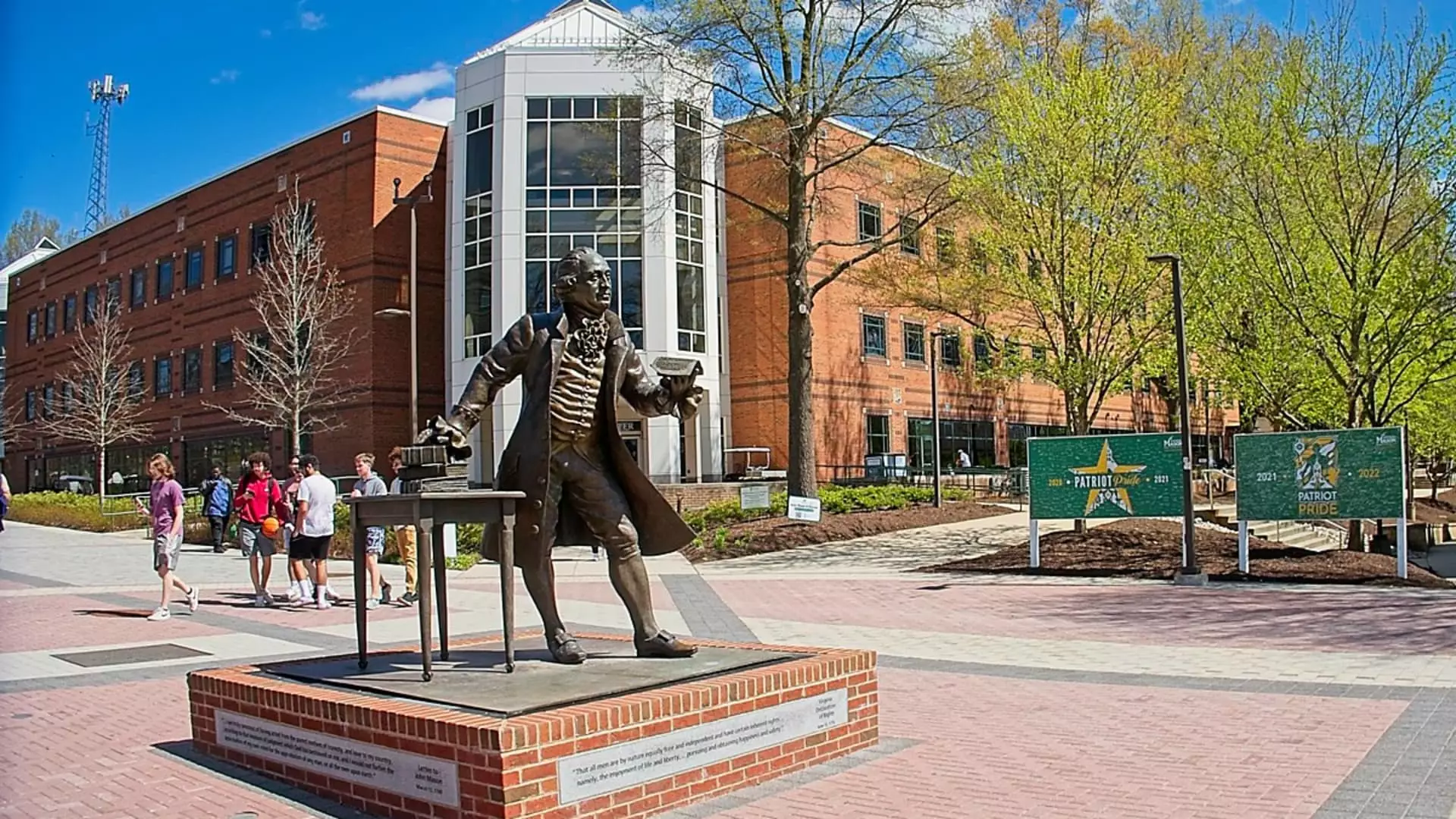In recent months, the federal government’s renewed scrutiny of university hiring and diversity initiatives reveals a troubling shift toward politicizing higher education. The investigation into George Mason University’s practices, prompted by claims of preferential treatment for certain racial groups, exemplifies the dangerous influence of partisan agendas infiltrating what should be a space dedicated to academic excellence and genuine inclusion. Instead of fostering environments where talent and merit are prioritized, these probes threaten to distort the core mission of higher education, turning it into a battleground for political posturing.
At a time when universities should be cultivating critical thinking and open dialogue, the federal government’s inquiries seem more aligned with enforcing ideological conformity. The accusations—ranging from the presence of “Equity Advisors” to guidance on hiring based on diversity considerations—highlight a key problem: the conflation of diversity initiatives with quotas or favoritism. This rhetoric oversimplifies the complexity of creating an inclusive academic community and instead risks reducing talented individuals to their racial or demographic identities, thereby eroding the principle of meritocracy. Universities should be spaces where achievement outshines identity, not where policies conveniently serve political narratives.
The Danger of Government Overreach and its Impact on Academic Freedom
The targeting of George Mason University, alongside other institutions like the University of Virginia, signals a troubling trend of government overreach rooted in ideological motives. Initiatives purportedly aimed at combating discrimination are increasingly being weaponized to scrutinize and potentially undermine universities that adopt progressive policies. This is especially concerning at a time when campuses are broader arenas for diverse ideas—yet, ironically, these investigations threaten to silence voices that challenge conservative or traditional perspectives within academia.
Furthermore, this increased oversight undermines the delicate balance between federal standards and institutional independence. Universities are complex ecosystems where policies should be guided by evidence, academic values, and the pursuit of knowledge—not by political expediency. When federal agencies focus narrowly on allegations of “preferential treatment” based on race, they risk stifling the very diversity and inclusion efforts that, when implemented responsibly, promote a richer, more dynamic academic community. By targeting institutions like GMU, the government appears more intent on signaling ideological allegiance than fostering genuine progress.
Is This About Equity or Political Control?
The core issue at stake is whether these initiatives genuinely serve to enhance equity or are being exploited for partisan gain. The claim that university hiring involves “guidance” to prioritize diversity raises fundamental questions about the line between ensuring fair access and imposing quotas. The narrative that certain policies “favor” underrepresented groups often ignores the broader context of historical inequalities and systemic barriers that still hinder access to higher education. Addressing these disparities requires thoughtful, nuanced policies—not punitive investigations rooted in political motivations.
Moreover, the timing and framing of these probes suggest more than a sincere effort to combat discrimination; they seem to be part of a broader strategy to reshape higher education to fit a particular ideological mold. The fact that George Mason’s president, Gregory Washington, took office as the university’s first Black leader—an achievement that should signify progress—becomes entangled in debates about whether leadership reflects genuine diversity or is manipulated to serve political narratives. This exposes a dangerous tendency: using diversity not as a means for societal betterment but as a political checkmark to appease partisan interests.
The Broader Implications for Democracy and Society
When government agencies use investigations as leverage against universities, they undermine the cornerstone of democratic societies: open debate and academic freedom. Higher education thrives on the clash of ideas, including those that challenge prevailing narratives. If institutions fear Federal overreach—risking loss of funding or reputation for adopting progressive policies—they might retreat from meaningful efforts to diversify or reform, leading to intellectual stagnation.
The repercussions extend beyond academia. Universities shape societal values and cultivate future leaders. When the government limits their ability to implement inclusive policies or investigates based on political biases, it erodes public trust in educational institutions. This damaging climate discourages honest conversations about race, equality, and historical injustices and shifts societal discourse into a polarized, zero-sum game. Instead of viewing diversity initiatives as tools for societal advancement, they become symbols of political battlegrounds, ultimately harming the very communities they aim to serve.
While addressing concerns of discrimination is undeniably vital, turning higher education into a domain of political warfare compromises its integrity. Universities should be empowered to develop policies rooted in scholarship, equity, and respect—free from the pressure of partisan investigations that threaten to undermine merit and academic freedom. A reevaluation of priorities is necessary: policies must prioritize genuine inclusion without sacrificing excellence or independence. The role of government should be to


Leave a Reply